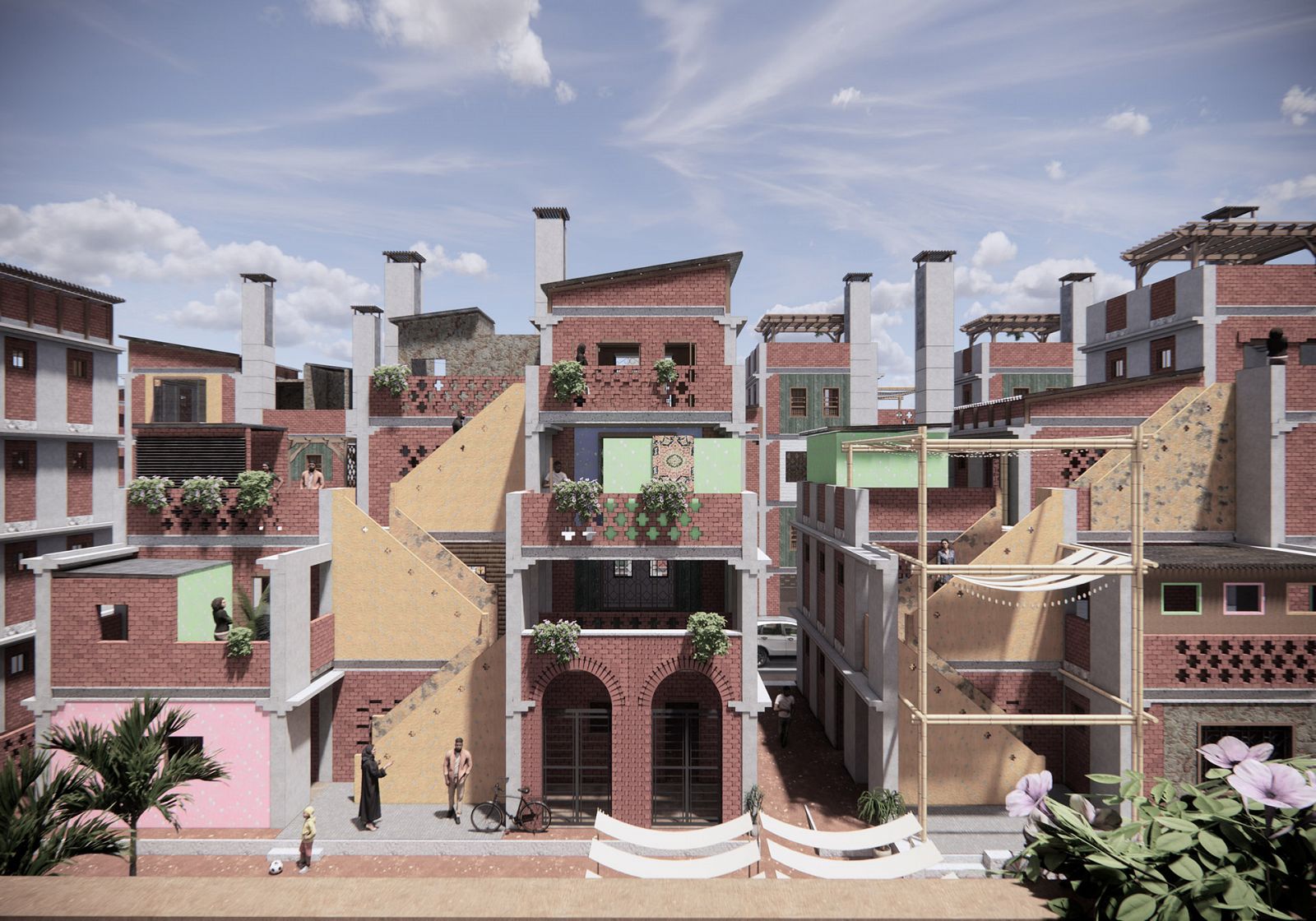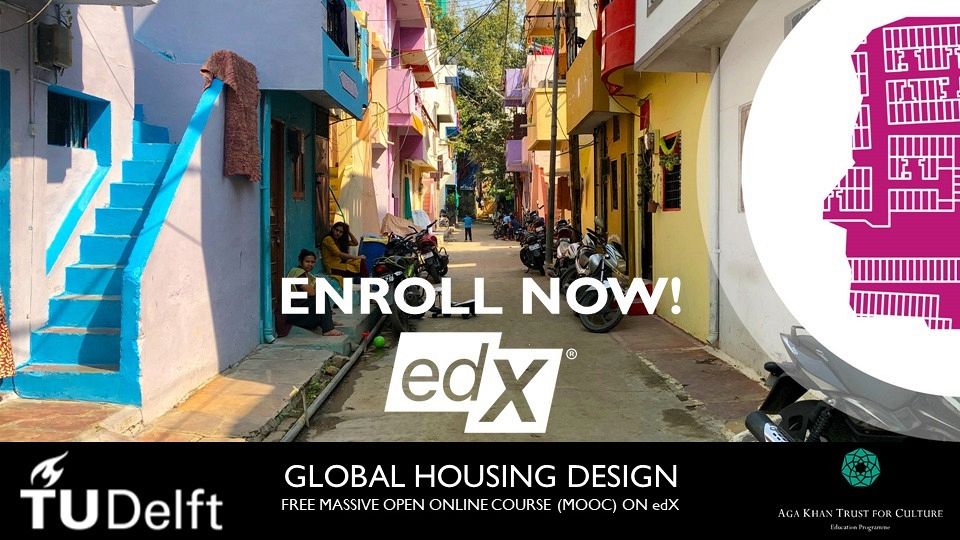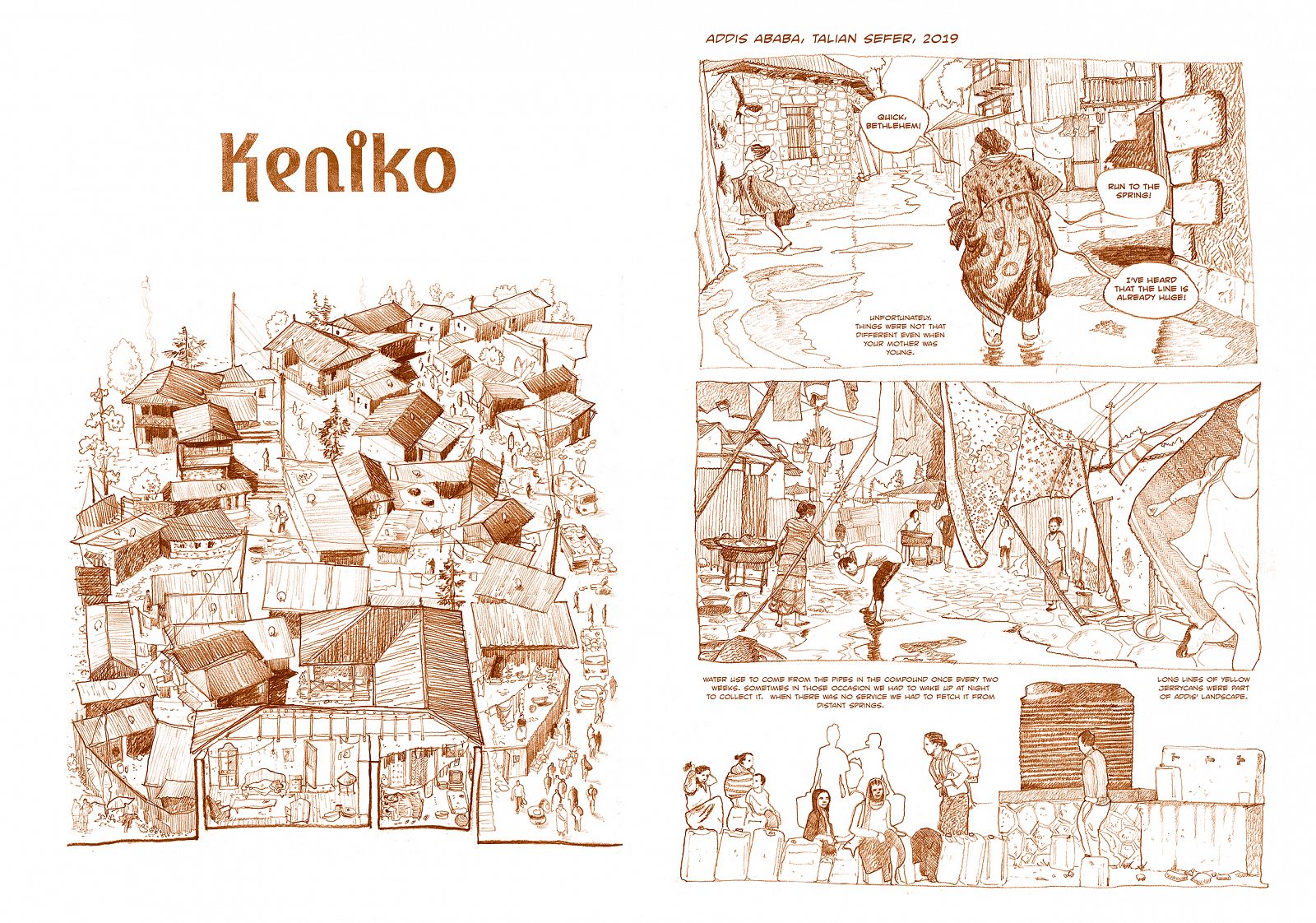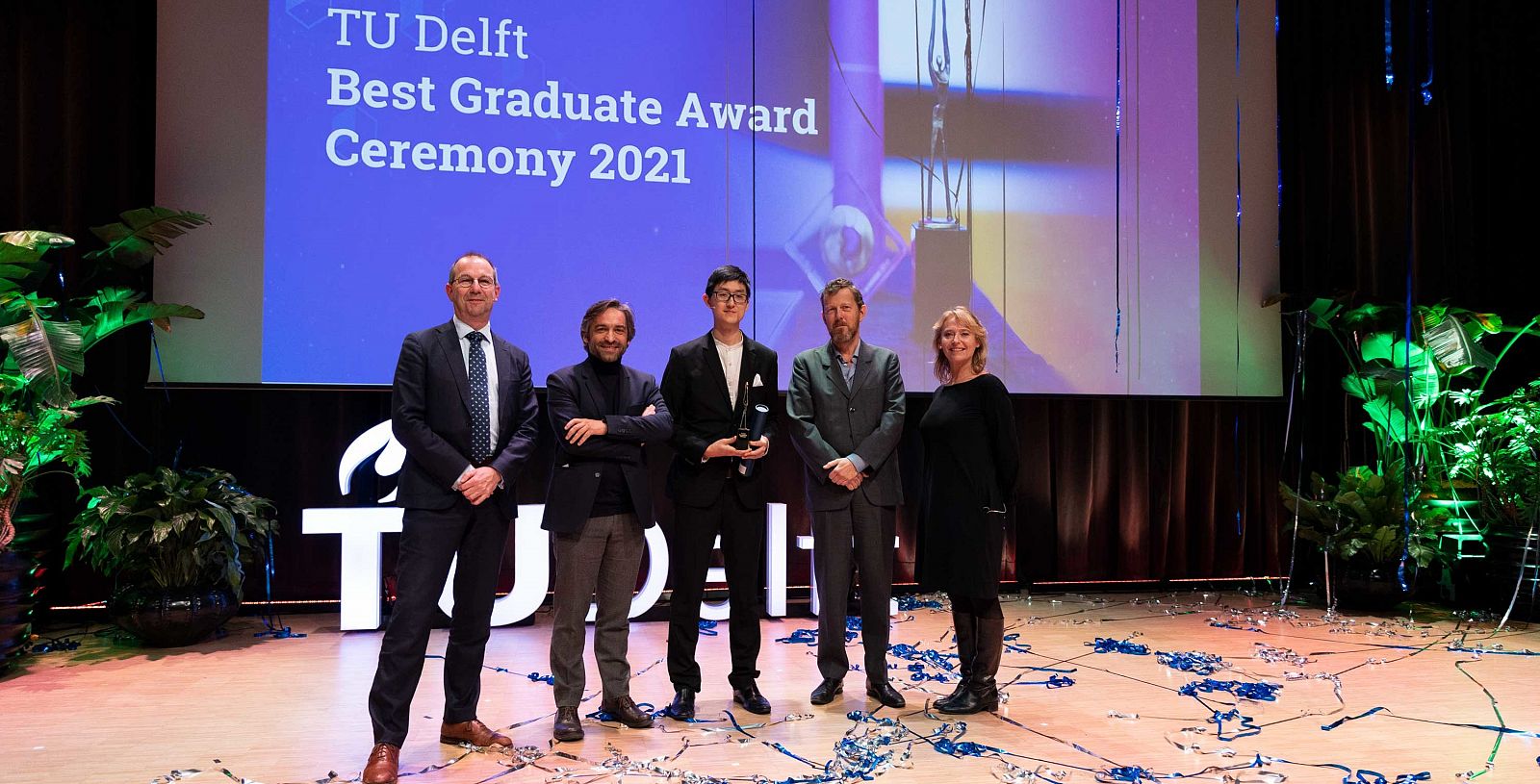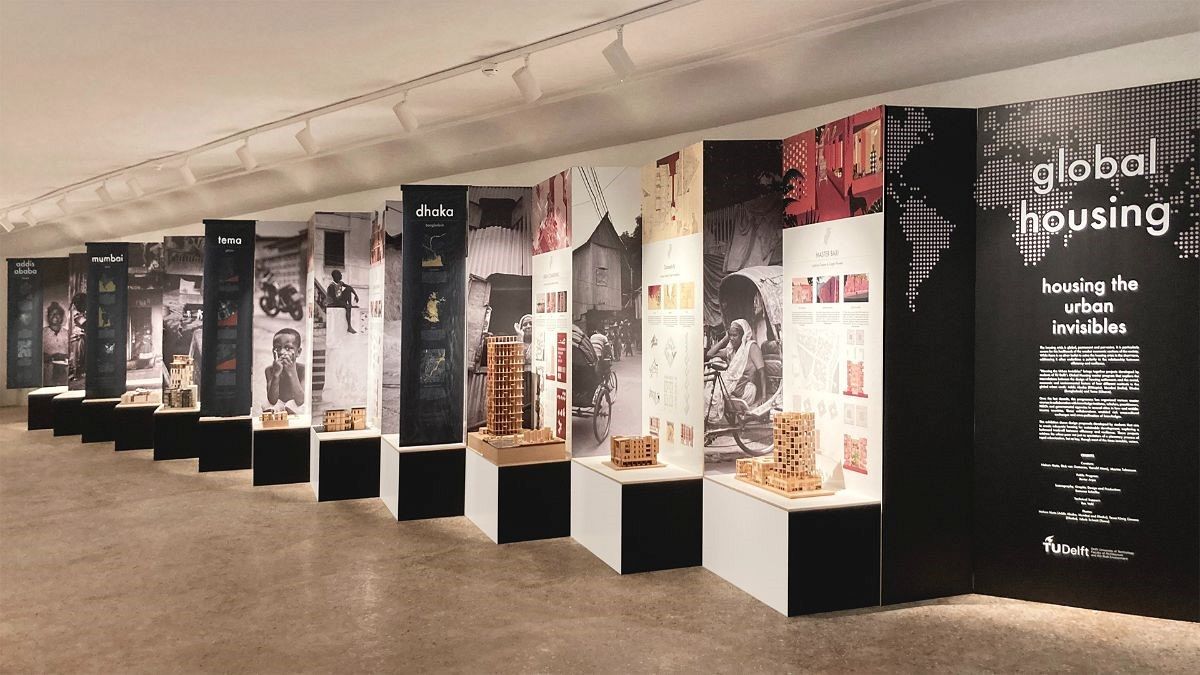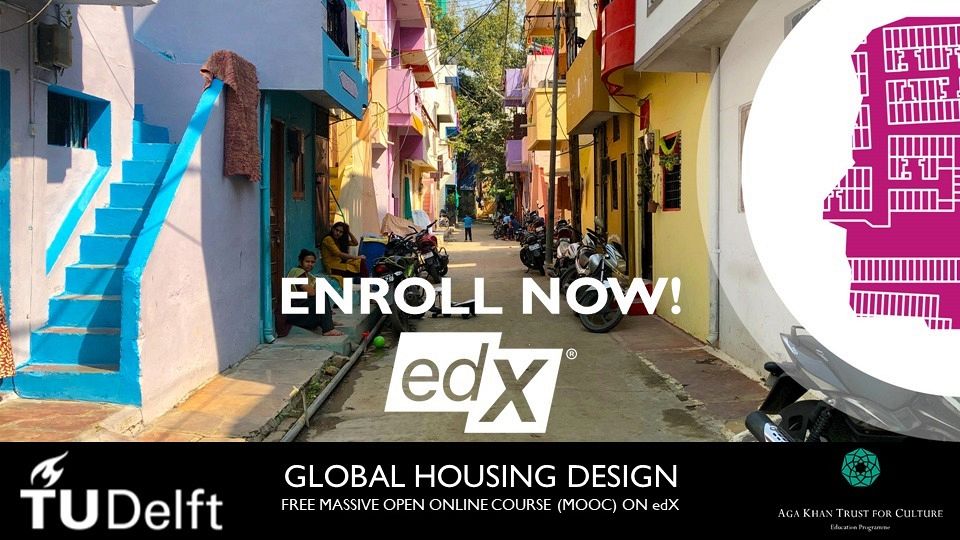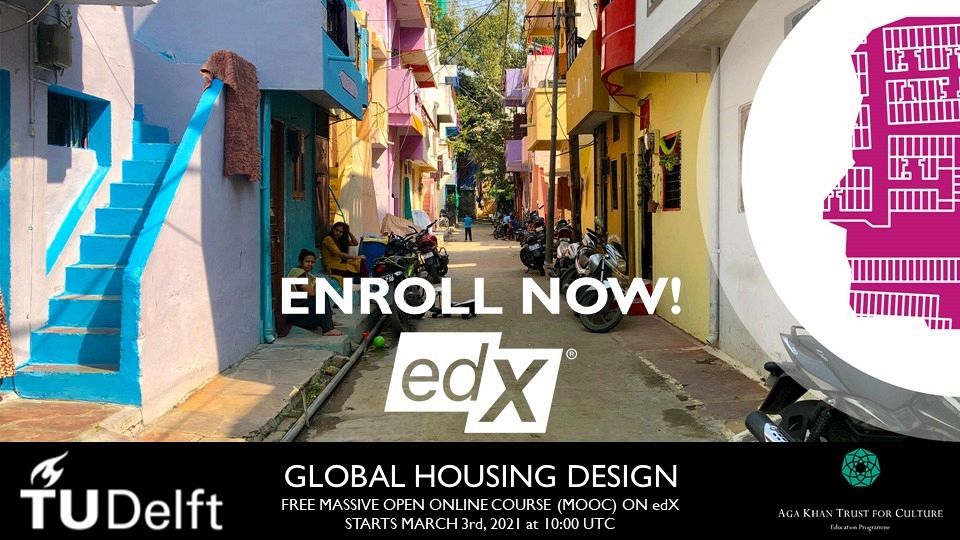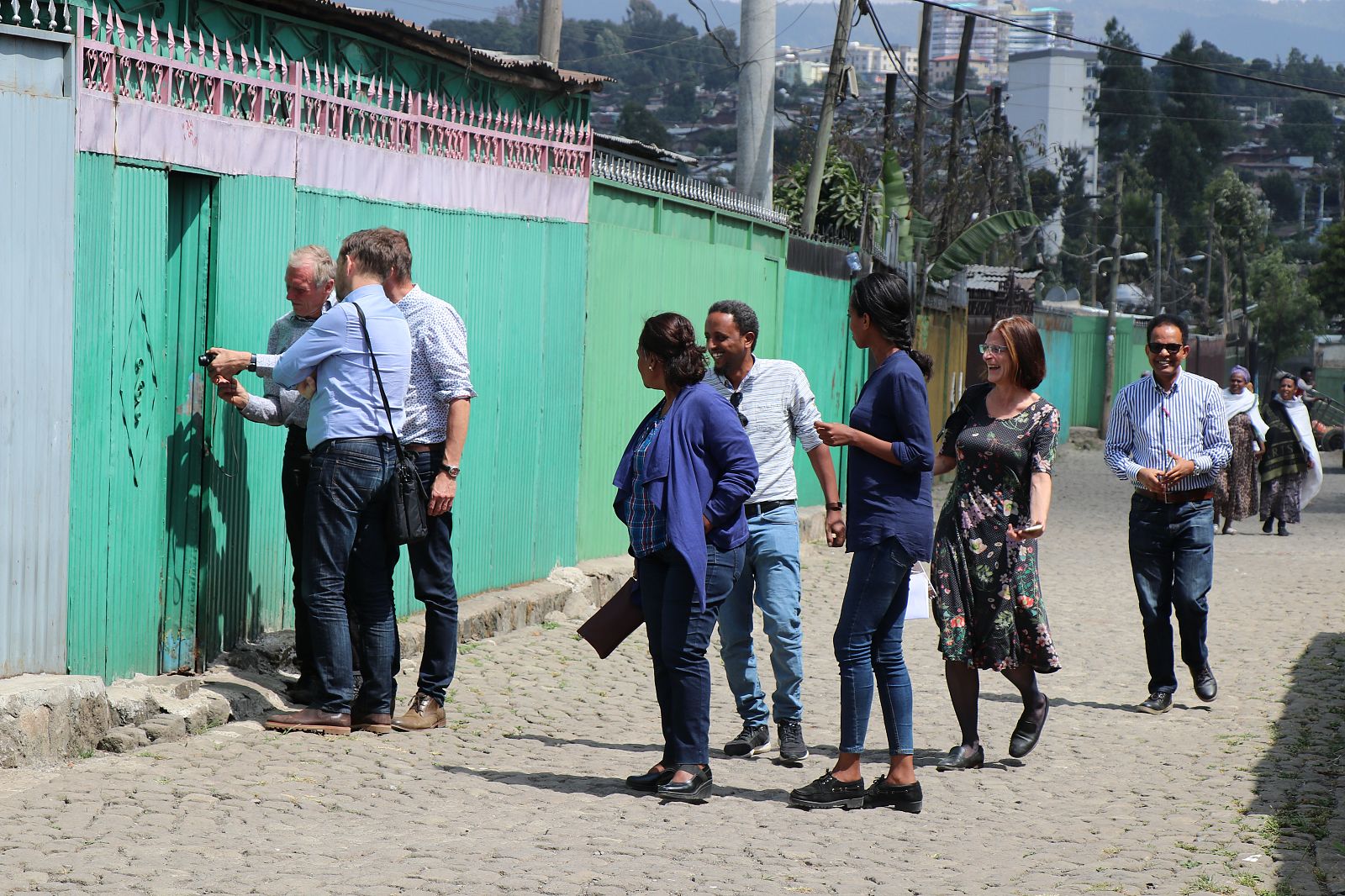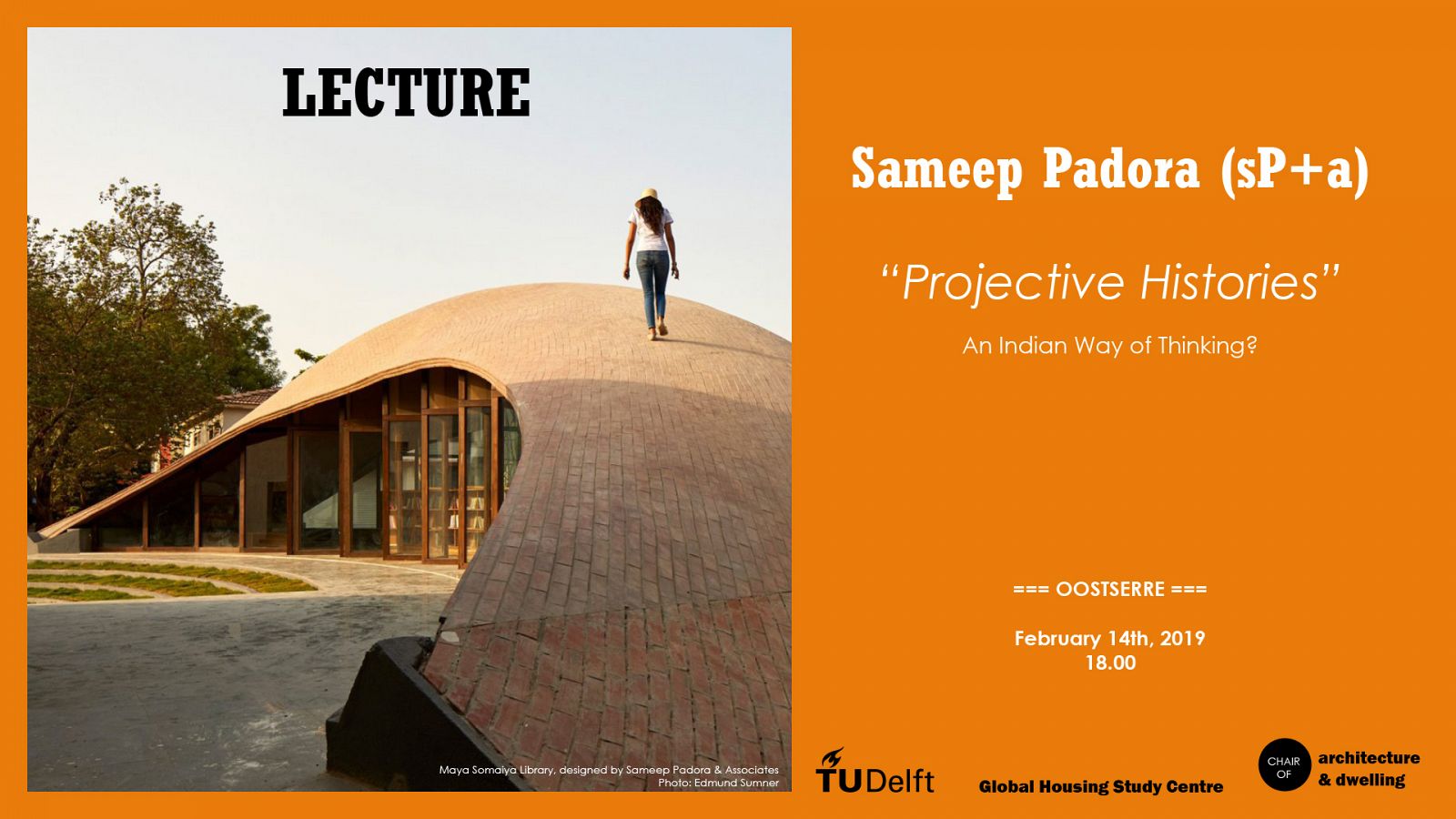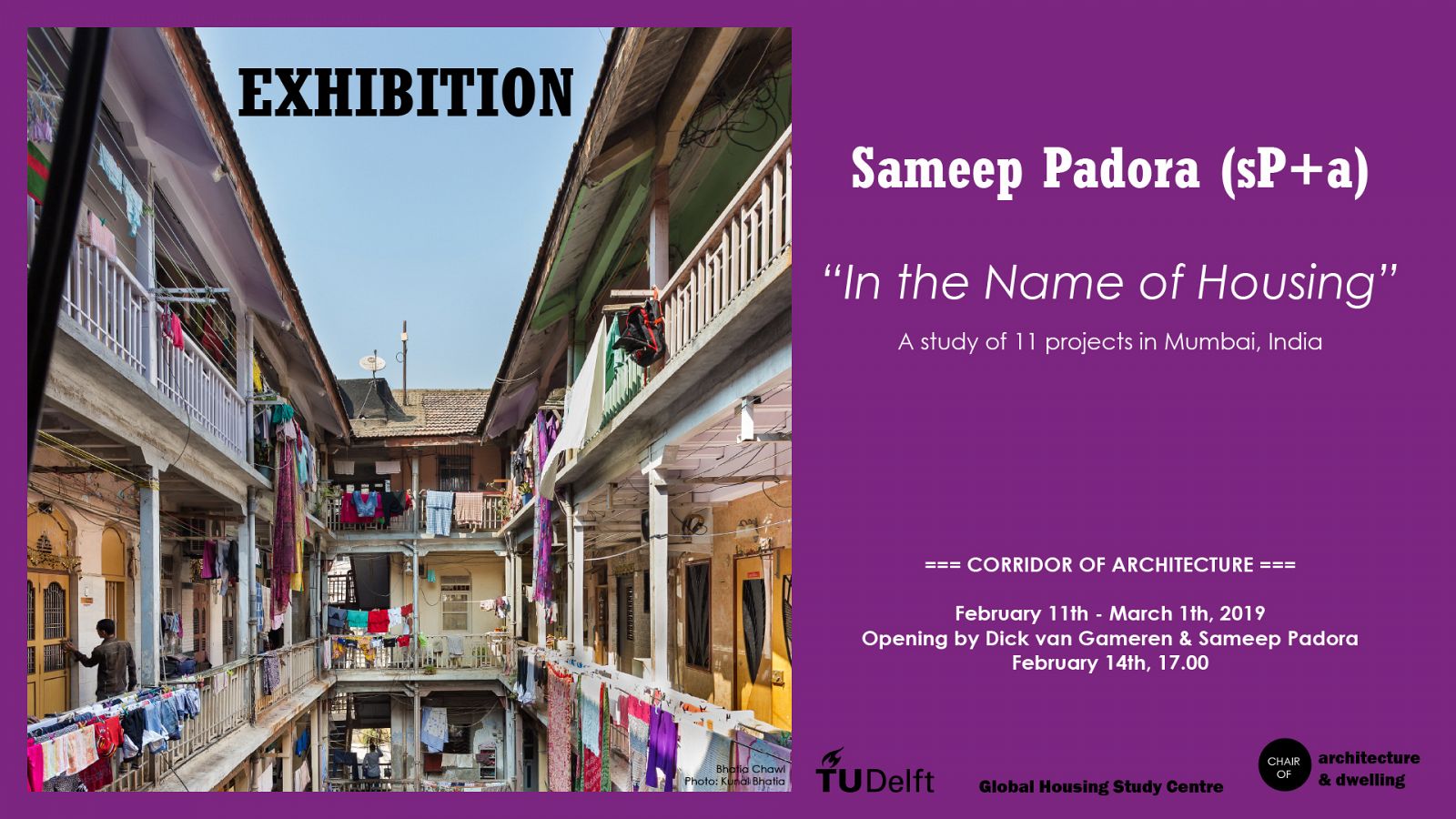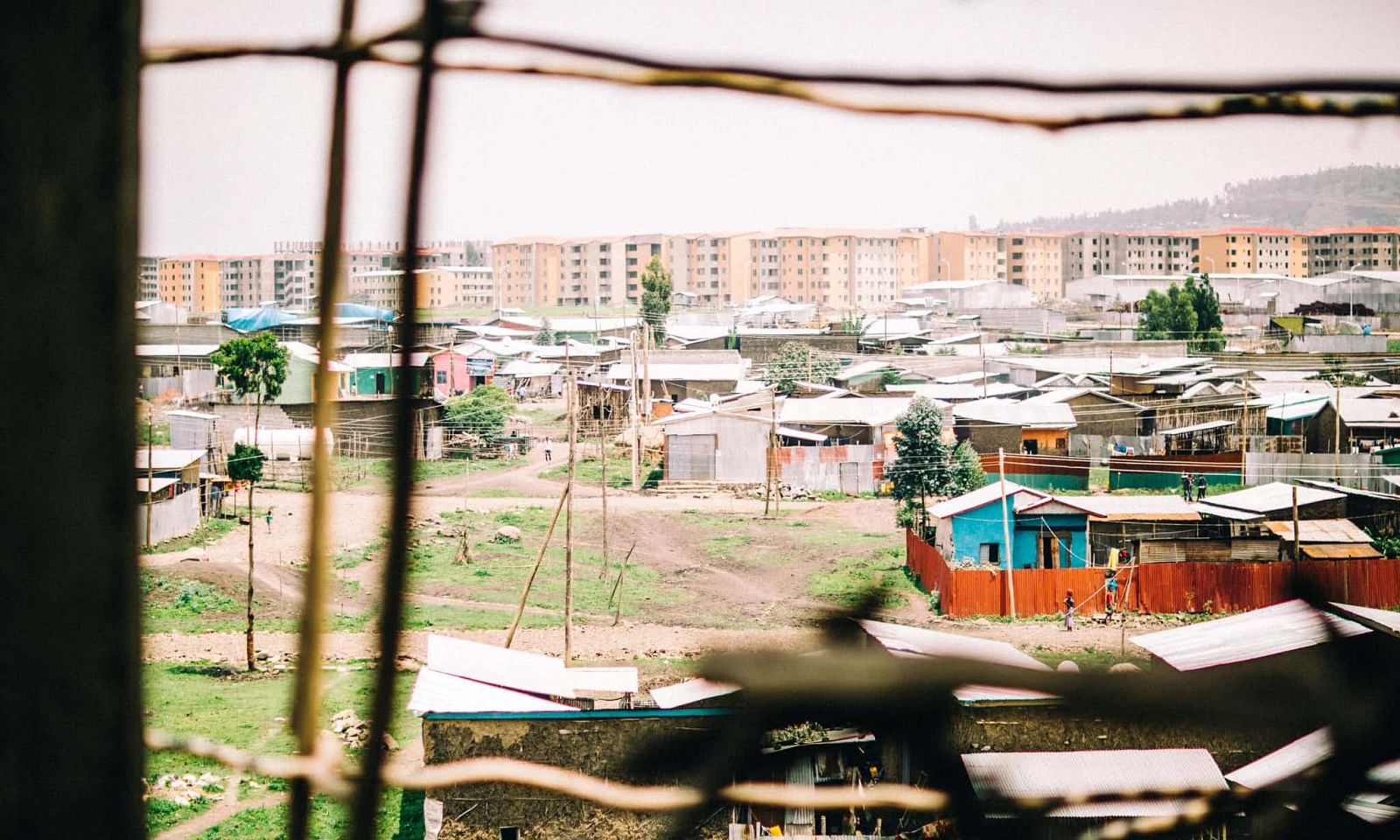- News
On the 2nd of February (2026), the self-paced run of the MOOC Sustainable Housing Design will be launched.
Learn about practical and innovative design approaches to reduce energy use, enhance resource efficiency, ensure affordability, and foster sociocultural integration in the housing sector.
The MOOC has been developed by TU Delft’s Faculty of Architecture and the Built Environment in collaboration with the Aga Khan Trust for Culture (AKTC). It explores how design decisions can reduce energy consumption and greenhouse gas emissions in housing, thus contributing to climate change mitigation. It also examines strategies for addressing the depletion of natural resources, emphasizing the importance of resource efficiency in the housing sector.
The course also discusses the role of affordable housing in fostering social equity and economic sustainability. It emphasizes the importance of inclusive design practices that support culturally and socially appropriate housing, which can further promote social cohesion and resilient communities.
Farrokh Derakhshani is Director of the prestigious Aga Khan Award for Architecture. He has been associated with the Award since 1982, where his work has brought him into contact with architects, builders, and planners throughout the world. He has collaborated on a large variety of publications, curated architecture exhibitions and has been involved in organising professional workshops and international architectural competitions.
In conversation with Derakhshani we will be discussing the role of awards in shaping the architectural discipline. Do awards mirror or challenge existing architectural cultures?
In what ways do they shape the design field? Which institutions and people are behind them? The conversation will be joined by Dick van Gameren and Marina Tabassum, who both have extensive experience in the field, and both won the Aga Khan award in 2007 and 2025 respectively. Klaske Havik will be sharing her experience as jury of the Latin American architecture prize Premio Rogelio Salmona and the Dutch National Archiprix.
On the 22nd of October (2025), the self-paced run of the MOOC Sustainable Housing Design will be launched.
Learn about practical and innovative design approaches to reduce energy use, enhance resource efficiency, ensure affordability, and foster sociocultural integration in the housing sector.
The MOOC has been developed by TU Delft’s Faculty of Architecture and the Built Environment in collaboration with the Aga Khan Trust for Culture (AKTC). It explores how design decisions can reduce energy consumption and greenhouse gas emissions in housing, thus contributing to climate change mitigation. It also examines strategies for addressing the depletion of natural resources, emphasizing the importance of resource efficiency in the housing sector.
The course also discusses the role of affordable housing in fostering social equity and economic sustainability. It emphasizes the importance of inclusive design practices that support culturally and socially appropriate housing, which can further promote social cohesion and resilient communities.
Professor Dick van Gameren (Faculty of Architecture and the Built Environment) and his team are the winners for their exemplary Global Housing Design – a free MOOC available on edX.org. The course, which focuses on the design of sustainable and inclusive housing, directly addresses the critical global need for urban development expertise, with close to a billion people worldwide currently living in inadequate housing.
The edX Prize is given annually to the faculty members and teachers who best showcase the potential that online learning has to transform our educational systems and inspire learners to chase their knowledge goals. It’s also a recognition of the innovative methods that instructors use to maintain learner engagement and help build connections to turn insights into real-world impact. Van Gameren: “Teaching online allows me to reach thousands of people across the world and empower them to make positive changes to the environment and the buildings they work and live in. As a team, we can use our passion and expertise to teach others about designing and building adequate housing for a more sustainable future. And learners can acquire knowledge and skills at a time and place that suit their busy lives – whilst collectively we contribute to a better world.”
Global Housing Design
Van Gameren and his colleagues - Nelson Amorin Mota, Frederique van Andel, Rohan Varma, Ramona Scheffer and Stephany Knize - built an immersive course that educates learners about the challenges and opportunities of creating affordable residential buildings from both a global and local perspective. The course encourages critical discussions about the design process and the social, economic, and environmental influences and motivations that influence design. In addition, the course offers a highly personalized component, where learners are tasked with reimagining the housing projects in their own communities to visualize a more sustainable tomorrow. Those development proposals are compiled into one searchable database for participants to explore new ideas and offer feedback, creating a global network of energized learners eager to enact change.
Enroll here
Two MSc graduates from the Faculty of Architecture and the Built Environment became third in the finale of the DAIDA Foundation Global Thesis award 2021. The annual event, acknowledges master graduates who come up with ideas to improve the lives of vulnerable groups living in rapidly growing cities in the context of the Global South. Ramona Scheffer and Zhuo-ming Shia were shortlisted with their graduation work amongst 10 other nominees and ended up sharing third place.
Zhuo-ming Shia | An Architecture of Enablement: A Participatory Housing Process for Addis Ababa, Ethiopia
In the majority of cases, the design and production of housing is a product driven system much to the detriment of rapidly urbanising cities in the Global South. Can a new system of housing driven by process offer an alternative to the current mass housing model?
Read the thesis here.
Ramona Scheffer | The Workers Madinat - Housing For Migrant Workers In Oman
The current standard of labour camps in Oman and other Gulf countries often only provides insufficient living conditions for migrant workers. A digital ethnographic study reveals reoccurring patterns in the camps and provides a theoretical backbone for a resilient neighbourhood that benefits both the migrant and local population.
Read the thesis here.
On the 23rd of February (2022) a new self-paced re-run of the MOOC Global Housing design will be launched.
Learn about the key design strategies required to develop adequate housing and inclusive dwelling environments for sustainable urban development.
The MOOC has been developed by TU Delft’s Faculty of Architecture and the Built Environment in collaboration with the Aga Khan Trust for Culture (AKTC). It will discuss options for affordable housing design, with a specific focus on low- and middle-income countries. We will take you through the intricacies of designing “housing for the large number”, as well as inspire you to understand your own context and the housing challenges you might be facing.
With his submission ‘Reconfiguring Addis Ababa’s Narratives – Storytelling for Architecture’ Antonio Paoletti, alumnus of the Global Housing graduation studio ‘Addis Ababa Living Lab’ (2019-2020) was announced the winner of the hand-drawn category of the international Architecture Drawing Prize. Antonio combined the results of ethnographic research, developed during the studio's fieldtrip to Addis Ababa in November 2019, with his superb hand-drawing skills, to illustrate his graduation project for the Talian sefer, using the format of a graphic novel.
Graphic novel
“This graphic novel, does not only represent the result of a micro-ethnographic and historical research but it turns even into a powerful tool to project narratives into the future“, says Antonio Paoletti. “Using graphic techniques borrowed from the architecture discipline, this graphic novel aims at bringing together representations of everyday life in the sefer (neighbourhood), that show how human life shapes its environment and vice versa. The present work not only portrays the architectural qualities and spatial relationships, but also reveals the hidden narratives of ordinary stories and draws inspiration from their reality to imagine new possibilities”.
The jury
The jury included Ken Shuttleworth (Make Architects), Louise Stewart (John Soane’s Museum’s Exhibitions Curator), Lily Jencks (Lily Jencks Studio), Narinder Sagoo (Foster & Partners) and was chaired by Paul Finch (programme director of the World Architecture Festival, and editorial director of Architects’ Journal/Architectural Review). “This impressive drawing uses an unusual format to place narrative and the impact of buildings on peoples’ lives at the heart of architectural drawing. This approach highlights the vibrancy of architectural drawing today, and the way it facilitates creativity and experimentation”, states Louise Stewart.
More information
The Global Housing graduation studio ‘Addis Ababa Living Lab’ of the Architecture & Dwelling group of the Department of Architecture ran for two years (2019-2021) and is a supportive component in the ongoing research project ‘Addis Ababa Living Lab: Creating Resilient Dwelling Clusters for Urban Resettlement in Addis Ababa, Ethiopia’, which is jointly funded by NWO-WOTRO and TU Delft (2019-2023).
On November 11, at the TU Delft Best Graduate Award Ceremony 2021, eight recently graduated students presented their research and results of their excellent master thesis. Zhuo-ming Shia, graduate of the Faculty of Architecture and the Built Environment received the prestigious title TU Delft Best Graduate 2021. For his graduation research, Zhuo-Ming developed a socially responsible process for global housing design. His thesis called ‘An Architecture of Enablement: A Participatory Housing project for Addis Ababa, Ethiopia’ was developed in the Global Housing graduation studio ‘Addis Ababa Living Lab’ (2020-2021) of the group Architecture & Dwelling of the Department of Architecture and was supervised by Nelson Mota, Frank Schnater, Harald Mooij and Vanessa Grossman. This studio ran for two years and is a supportive component in the ongoing research project ‘Addis Ababa Living Lab: Creating Resilient Dwelling Clusters for Addis Ababa, Ethiopia’, which is jointly funded by NWO-WOTRO and TU Delft (2019-2023).
“An Architecture of Enablement’ creates a model for co-existence between top-down and bottom-up decision-making in the Global South. It suggests that current methods of housing production can be adopted in initial phases of construction, while participatory design, fundamentally rooted in informal practices of Addis’ dwellers, can take place at a later stage on a smaller scale. This ideological shift from ‘housing product’ to ‘housing process’ aims to create a win-win situation, meeting immediate housing demand and sowing the seeds for a cohesive and loved home for communities” (Zhuo-ming Shia, 2021)
Zhuo-ming not only won the Best Graduate Award, he is also a nominee for the national Archiprix 2022 and successfully joined the Honours Programme Master with an excellent research called ‘Patterns of Participation – Developing a Toolkit to aid Architects in designing Participatory Housing methodologies in the Global South’, supervised by Frederique van Andel.
The BK faculty will be represented at the 17th Venice International Architecture Exhibition with “Housing the Urban Invisibles”. A show that displays student work and educational material that critically explores alternative approaches for the design of mass housing as a key component of sustainable development.
On the 5th of May (2021) the self-paced re-run of the MOOC Global Housing design will be launched.
Learn about the key design strategies required to develop adequate housing and inclusive dwelling environments for sustainable urban development.
The MOOC has been developed by TU Delft’s Faculty of Architecture and the Built Environment in collaboration with the Aga Khan Trust for Culture (AKTC). It will discuss options for affordable housing design, with a specific focus on low- and middle-income countries. We will take you through the intricacies of designing “housing for the large number”, as well as inspire you to understand your own context and the housing challenges you might be facing.
On the 3rd of March (2021) the first instructor paced run of the MOOC Global Housing design will be launched.
Learn about the key design strategies required to develop adequate housing and inclusive dwelling environments for sustainable urban development.
The MOOC has been developed by TU Delft’s Faculty of Architecture and the Built Environment in collaboration with the Aga Khan Trust for Culture (AKTC). It will discuss options for affordable housing design, with a specific focus on low- and middle-income countries. We will take you through the intricacies of designing “housing for the large number”, as well as inspire you to understand your own context and the housing challenges you might be facing.
The joint TU Delft and NWO-WOTRO funded research project ‘Addis Ababa Living Lab’ kicked off one year ago, in May 2019. Over the last year, a team of researchers from TU Delft and the Ethiopian Institute for Architecture Building Construction and City Development (EiABC) have been working together on the first research outputs to achieve the project’s goal: to improve the livelihood of Addis Ababa’s resettlement dwellers. This work will continue in the coming three years.
Two PhD Candidates joined the project, both from EiABC, and started working on two different aspects of the project. Yonas Alemayehu, based in Addis Ababa, will analyse past and current processes of urban resettlement in Addis Ababa, and investigate the needed conditions for using a more interdisciplinary and participatory process of planning, implementation and management. Yonas, travelled to the Netherlands with an additional grant from Delft Global Initiative to conduct literature study, meet with his promotors, and collaborate with the educational program of the Global Housing group at the Department of Architecture.
Brook Teklehaimanot, based at TU Delft, studies the ‘patterns of inhabitation’ of dwellers living in Addis Ababa’s different urban conditions. He will bring about deeper knowledge on the social and spatial practices of urban communities, including dwelling practices, structures of sociability, forms of income generation, borders, building materials and techniques. He conducted fieldwork in Addis Ababa to identify case study sites and tested ethnographic methods of observation, and citizens’ participation.
In November 2019, the whole team got together in Addis Ababa for intensive meetings, a workshop and site visits along with the 16 students from the related TU Delft ‘Addis Ababa Living Lab’ MSc3/4 Graduation Studio. Currently, the students are in the last stage of the development of their graduation research, which is expected to deliver 16 different architectural design proposals, for four different sites in Addis Ababa.
Coming year – when Covid-19 allows us – we start working on a participatory research and design to build a Pilot Project in Addis Ababa, coordinated by Prof. Dick van Gameren (Mecanoo Architecten) and Rahel Shawl (RAAS architects). The research outputs created by the research team will be used to support the designers pursuing an alternative model for the design and development of adequate housing in Addis Ababa. The Pilot will also be used as a test case and feedback loop to develop an holistic, actionable framework for creating resilient dwelling clusters for urban resettlement in Addis Ababa.
Read more about this project here
From 27 to 29 March, the conference African Perspectives+12 on Design, Planning, and Construction will be hosted at BK City. The conference will focus on research and practice for inclusive, fair, and sustainable urbanisation.
More than 12 years after the 2007 conference on African Perspectives, this conference builds upon the legacy and intents to reinvigorate the discussion by attracting new voices to the dialogue. The conference is a catalyst for discussion, exchange and connection, with the clear goal of bringing together academia, practitioners, governance bodies, and cultural agents to engage and explore next steps for sustainable urbanisation in Africa.
The India of the immediate post-independence era was marked by a frantic nation building energy, which was in some sense serviced by the singularity of the modernist project. Since then however India’s varied socio-cultural environments have shown the futility of singularity as a means of engaging with the country’s incredibly diverse contexts. The lecture will attempt to present the work of the studio within the frame of these contexts as conditional imperatives.
More info here
From February 11 until March 1, 2019, the exhibition 'In the Name of Housing' from Sameep Padora will be shown at the Architecture Corridor of the Faculty of Architecture and the Built Environment of Delft University of Technology.
The need for affordable housing in the city of Mumbai is beyond question. Most writing and discussion in the public realm on the subject has focused on the ‘How’ of Affordable Housing, examining models of subsidy, tenure, and equitable allocation. The focus of this study however, lies in the ‘What’. In the Name of Housing documents the typological and tectonic configurations of affordable housing in Mumbai sutured deep within the city’s fabric and history, and presents this as an alternative to the apathetic apartment format of formal affordable housing being built in the city currently.
The exhibition attempts to analyze these emergent archetypes using various methods of architectural documentation in an effort to establish a datum from which to project future possibilities.
More info here
The Global Housing Study Centre has been awarded a €500.000,- grant in the Joint SDG research programme - Tackling Global Challenges through Use-Inspired Research from NWO-WOTRO Science for Global Development and Dutch co-funding research organisations. The call was themed ‘Tackling Global Challenges through Use-Inspired Research’.
The Global Housing Study Centre will set up a living lab in Addis Ababa, Ethiopia, to create resilient dwelling clusters for urban resettlement. The project will produce a policy paper, an actionable framework and build a pilot project.
NWO-WOTRO Science for Global Development programmes, funds and monitors innovative research on global issues, with a focus on sustainable development and poverty reduction. NWO-WOTROs research projects are realised by interdisciplinary teams of researchers from the North and South and in close collaboration with non-academic stakeholders. These partnerships yield solutions for development challenges and strengthen the bridge between research, policy and practice.

